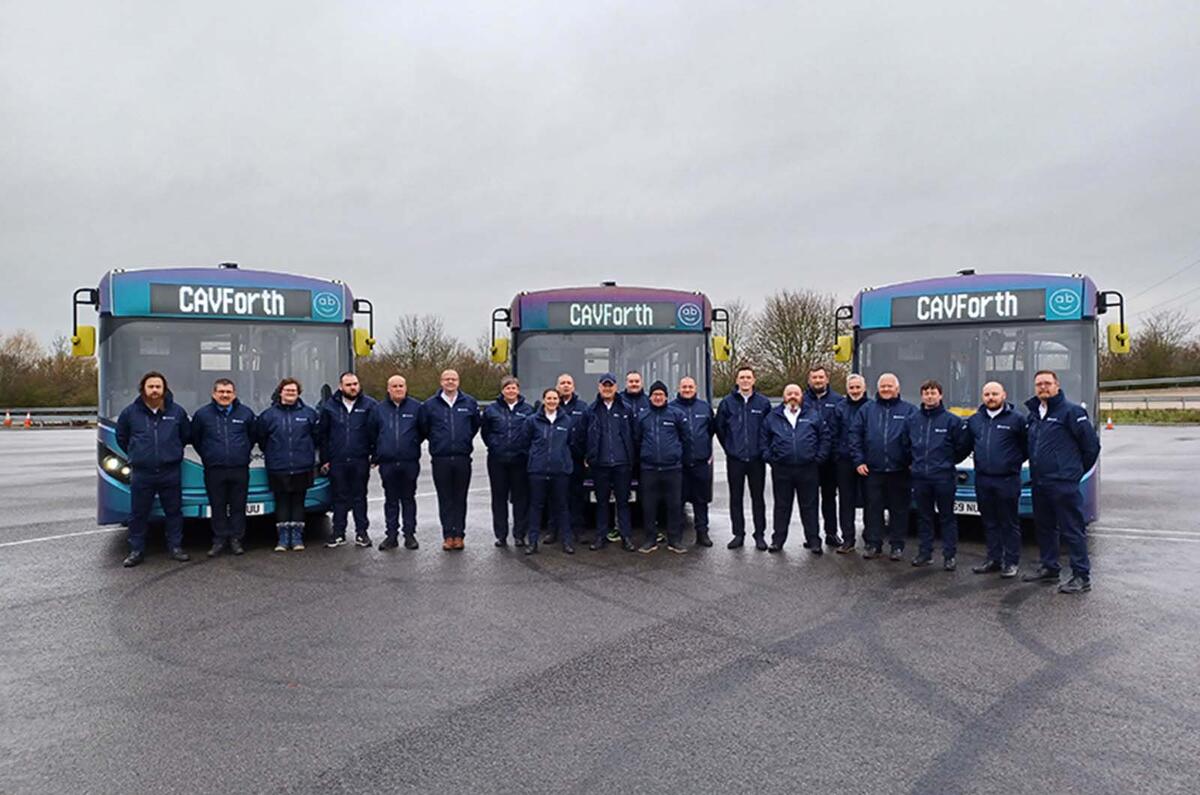The UK’s first autonomous bus fleet will operate services on public roads in east Scotland from next month.
The project, named CAVForth, involves a fleet of five driverless buses operating services over a frequent timetable between hubs in Edinburgh and Fife. It is predicted to cater for around 10,000 passenger journeys per week.
Operator Stagecoach, which runs the Megabus franchise, Scottish Citylink and Sheffield-based Supertram network, is using a fleet of Alexander Dennis Enviro200AV vehicles, which will operate on a 14-mile route in mixed traffic conditions at speeds of up to 50mph from 15 May.
The route begins at Ferrytoll Park and Ride in Fife and ends at Edinburgh Park Transport Interchange. It will cross the River Forth via the Forth Road Bridge, which is open to buses, taxis and motorbikes only.
The project is part of a joint venture consisting of six organisations - Fusion Processing, Stagecoach, Alexander Dennis, Transport Scotland, Edinburgh Napier University and Bristol Robotics Lab - and will be the UK’s first registered bus service to use driverless vehicles.
Two members of staff will be on board during a typical service, including a 'safety driver', who sits in the driver’s cab to ensure the technology works smoothly, and a ‘captain’, who supervises the passenger compartment to check tickets and answer questions.
Minister for transport for Scotland Kevin Stewart said: “This is an exciting milestone for this innovative and ambitious project, and I very much look forward to seeing Project CAVForth take to the roads next month.
“Our trunk road network can provide a wide range of environments as a diverse testing ground, and it (the project) will really help Scotland establish its credentials on the world stage.”
Safety driver training is currently under way for the project, with 20 staff members completing training before it launches next month.
This comes after news that the move to autonomous vehicles in the public and freight transportation sector is slowly gaining traction. Commercial vehicle start-up HVS, also based in Scotland, was recently awarded a £6.6 million government grant to develop its autonomous hydrogen-powered HGV. This is part of an attempt to decarbonise "one of the biggest-polluting vehicle sectors on the road".
Another British firm, Oxbotica, is shifting focus away from autonomous use of cars and moving instead to using autonomous tech for public transport and jobs that are dangerous, mundane and very specific.








Join the debate
Add your comment
I am making a real GOOD MONEY ($550 to $750 / hr) online from my laptop. Last month I GOT chek of nearly 85000$, f this online work is simple and straightforward, don’t have to go OFFICE, Its home online job. You become independent after joining this JOB. I really thanks to my FRIEND who refer me this SITE…..,
>>>>>> www.jobsrevenue.com
One of the biggest problems right now is staff going on strike. That is not an issue when there are no staff on the bus, which is the eventual aim. Bus services also become more useful when they run day and night, which is a lot easier to do with crewless buses (for both financial and staffing reasons).
Like any automation, the objective is to save money and the expense of working class jobs. It's a real worry.
Simple question - why?
They're going to have a driver monitoring it. If the driver is looking at screens, who's going to monitor the driver?
The 'captain' will monitor the passengers and answer questions? For feck sake, he or she is called the conductor. Or the clippy if it's a Scottish bus service.
If we're going to spend money on bus travel, lets sort out the rural services or the potholes rather than providfe a service that nobody wants.